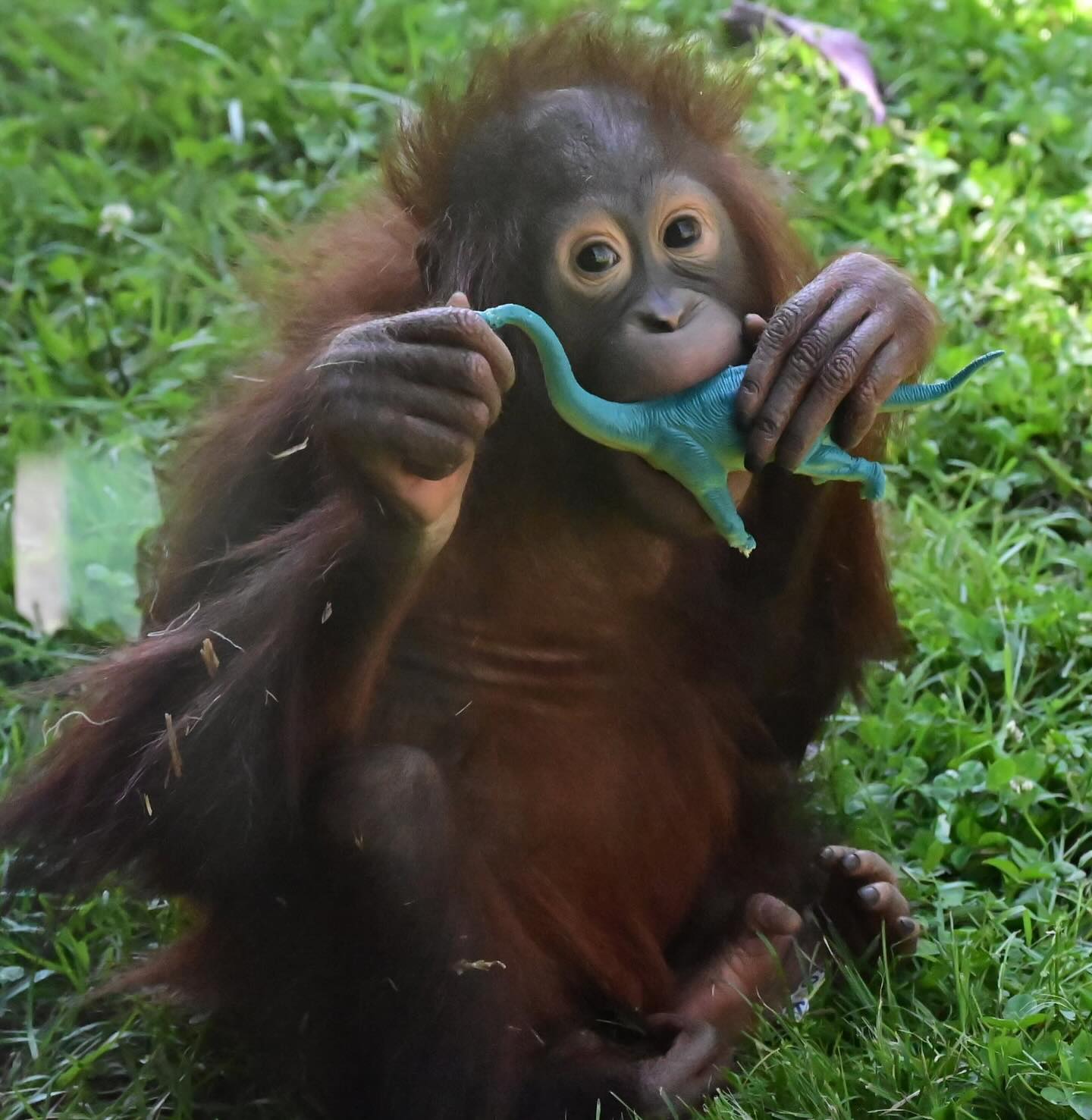- The vibrant celebration of Udara’s third birthday and its significance in fostering engagement and awareness at zoos.
- The importance of the Orangutan Species Survival Plan (SSP) in promoting genetic diversity among orangutan populations.
- The dynamics within Udara’s family and the role of zoo environments in supporting both individual and group needs.
- An exploration into the broader challenges and successes of wildlife conservation efforts in modern zoos.
- The role of educational programs in enhancing public understanding of primate conservation and the significance of zoos in this endeavor.
This week marks a significant milestone as Udara, the spirited young orangutan, celebrates her third birthday. This event is not merely about cake and decorations, although the primate care team has quite the reputation for hosting unforgettable parties. Instead, Udara’s birthday serves as an opportunity to promote zoo engagement and awareness about species conservation, particularly for orangutans. As Udara roams her habitat, playfully churning through life, her growth is a testament to successful conservation programs and the dedication of zookeepers and scientists alike.
The Orangutan Species Survival Plan (SSP) plays a critical role in Udara’s narrative. This program is designed to cultivate a genetically diverse population of orangutans in captivity, which supports the long-term survival of the species. Genetic diversity is vital to adapting to changes and resisting disease. The SSP involves a rigorous process where potential parents are matched across participating zoos. This ensures a healthy lineage while promoting conservation awareness. Udara’s birth as the third offspring to Rudy and Mawas is a direct result of these thoughtful efforts. Her siblings, Rayma and Bumi, also embody the success of the SSP, contributing to their family tree in different zoos.
Understanding the dynamics within Udara’s family, including her siblings’ roles, offers insights into the behavioral needs of orangutans. Rayma’s relocation to the Phoenix Zoo and Bumi’s continued presence alongside Udara demonstrate the careful curatorial decisions made by zoos to balance family bonds with individual growth needs. Zoos create environments that simulate natural habitats, allowing primates like Udara to develop social skills and instinctual behaviors essential for species continuation. The familial interactions, playful antics, and collective learning experiences witnessed in zoos provide key data for studying primate behaviors and social structures.
Wildlife conservation in modern zoos faces numerous challenges, from habitat destruction to climate change impacts. However, institutions have increasingly positioned themselves as critical players in conservation strategies. By taking part in international breeding programs and facilitating research, zoos act as both safe havens and educational resources. Exhibitions focusing on animals like Udara bridge the knowledge gap, enabling visitors to appreciate complex ecosystems and the urgent need for conservation. Initiatives in zoos serve dual purposes: safeguarding species and educating the public on ecological responsibilities.
The educational component of zoo programs cannot be overstated. Through interactive exhibits, visitor talks, and workshops, zoos provide invaluable insights into primate lives and conservation challenges. Udara’s story is woven into these narratives, highlighting the significance of individual animals in broader conservation contexts. By engaging the public with stories of specific animals, zoos inspire a sense of connection and responsibility in audiences. This approach generates widespread support for conservation endeavors and encourages sustainable practices beyond zoo walls.
Celebrating Udara’s third birthday highlights the successes of coordinated conservation efforts and the importance of public engagement in supporting these initiatives. Observing Udara and her family offers educational insights into primate behavior and serves as a reminder of the critical work undertaken by zoos globally. As Udara continues to charm visitors and grow within her habitat, she embodies the hope and dedication of conservationists striving to secure a future for orangutans.
*****
Source Description
Celebrating our favorite THREE-Rex! 🦖🦖🦖
Udara turned 3 years old this week (May 7) and the primate care team was sure to uphold their reputation of throwing DINOmite parties.
Udara is the third offspring to parents Rudy & Mawas – older sister Rayma now resides at the Phoenix Zoo but brother Bumi (12) still resides with us!
Udara & her siblings were born under recommendation from the Orangutan Species Survival Plan (@orangutanssp ). The Orangutan SSP matches potential parents in participating Zoos, ensuring they produce offspring that are genetically diverse to benefit the species population.
We can’t wait to continue watching Udara grow and chomp her way through life! 🦖🦧


